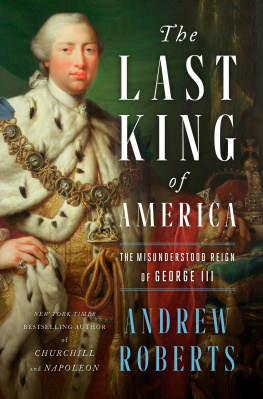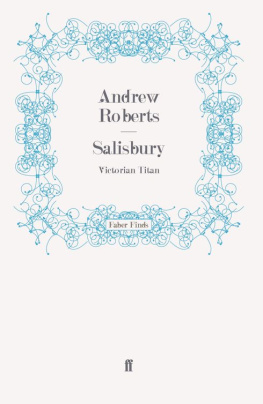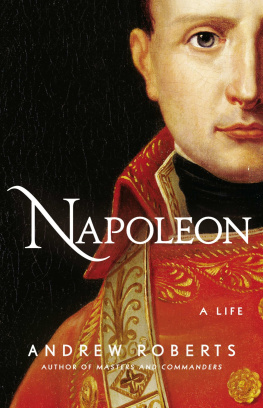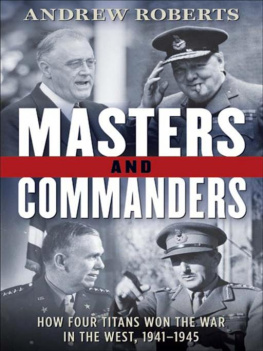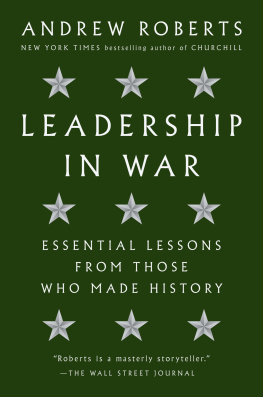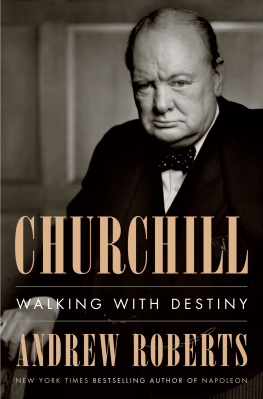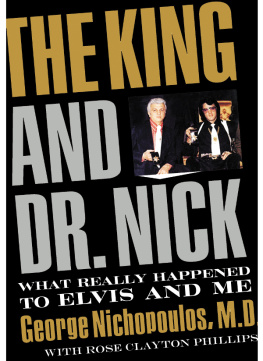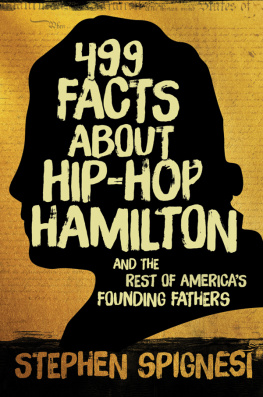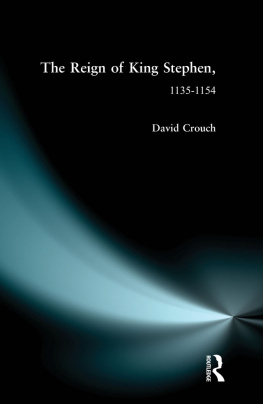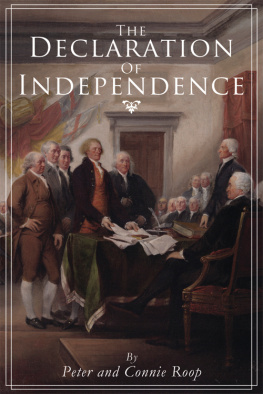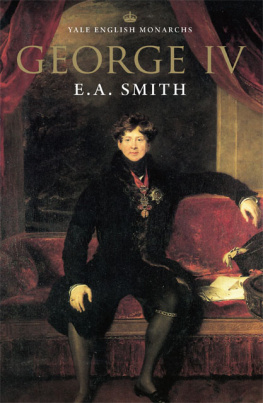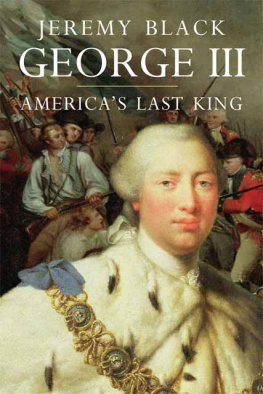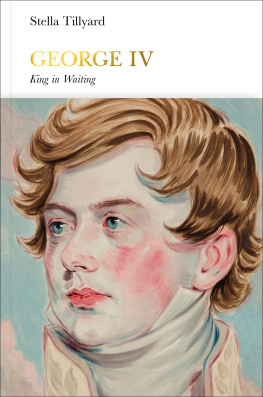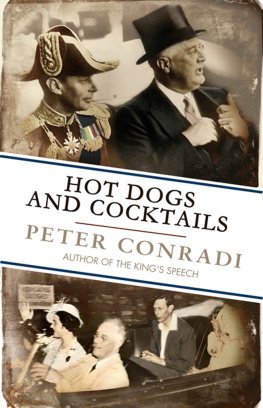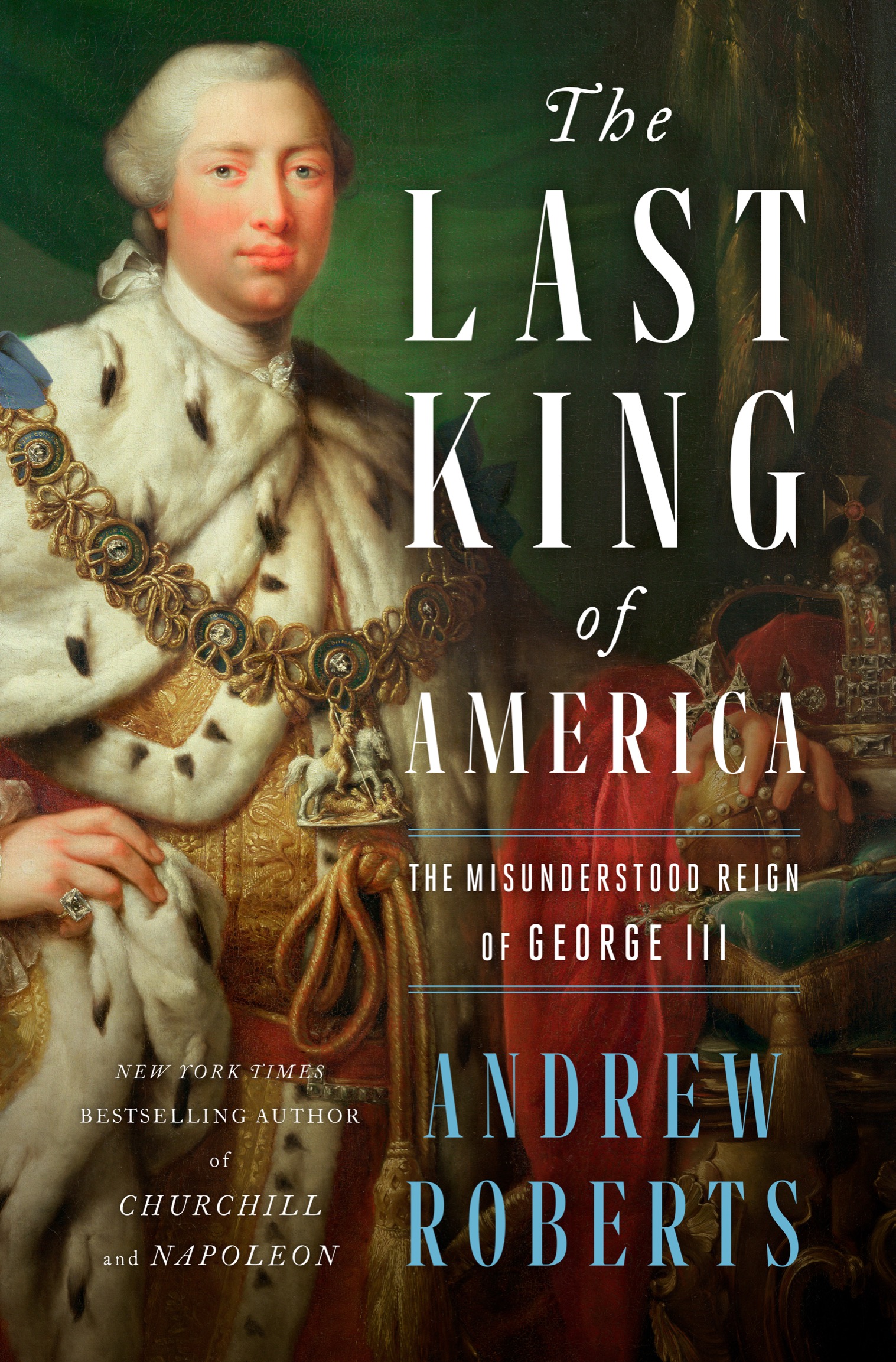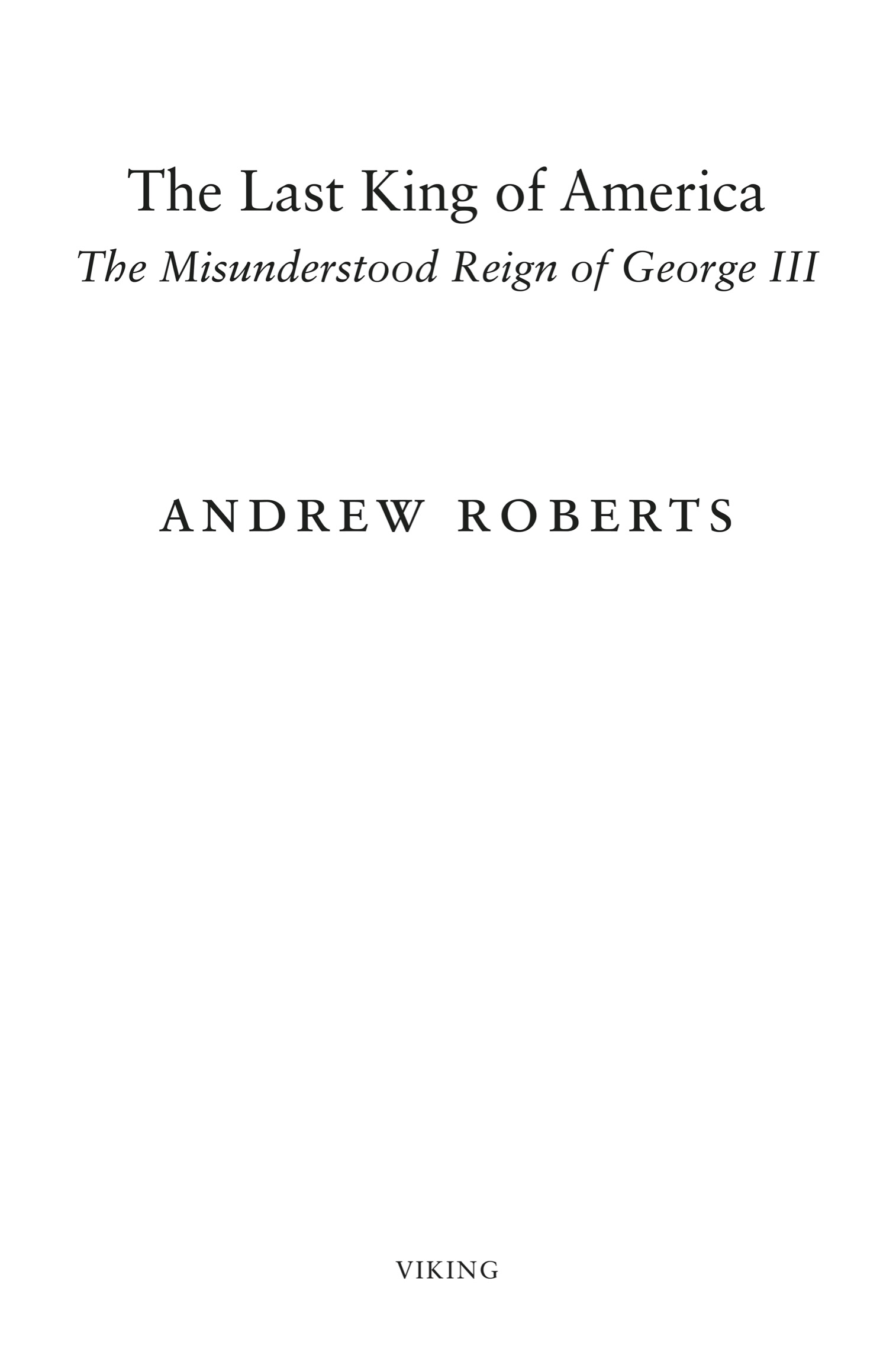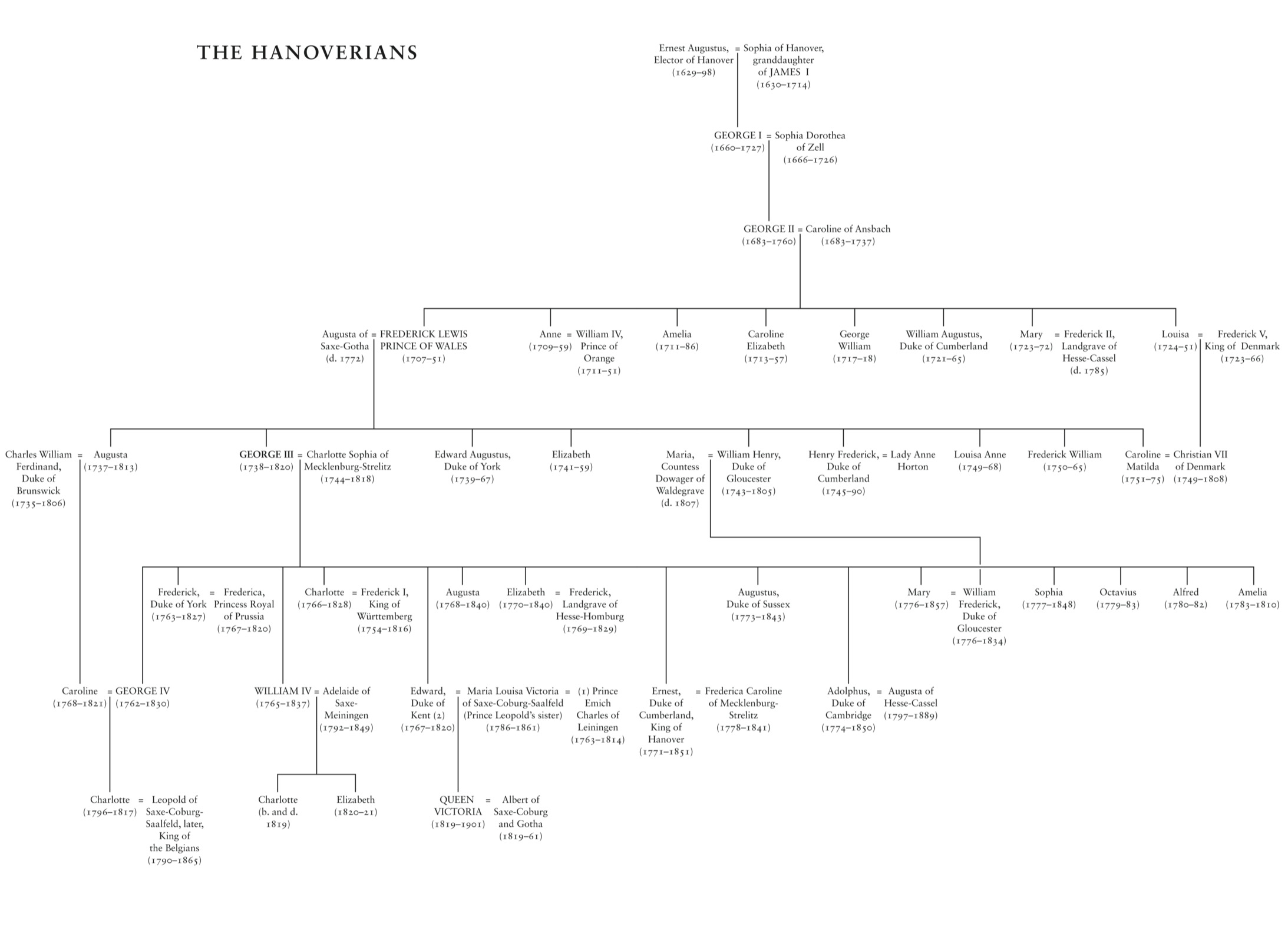First published in hardcover in Great Britain by Allen Lane, an imprint of Penguin Random House Ltd., London, in 2021.
First United States edition published by Viking, 2021.
Penguin supports copyright. Copyright fuels creativity, encourages diverse voices, promotes free speech, and creates a vibrant culture. Thank you for buying an authorized edition of this book and for complying with copyright laws by not reproducing, scanning, or distributing any part of it in any form without permission. You are supporting writers and allowing Penguin to continue to publish books for every reader.
Illustration credits can be found on .
Cover art: (front) Portrait of George III in his Coronation Robes, c. 1760 by Allan Ramsay (1713-84), Bridgeman Images; (back) Sergey Ryumin / Getty Images
Political systems and constitutional arrangements which were neither planned nor made but have grown up, are like living beings: dark repositories of an imperfectly known past which can never be completely obliterated. Even in new forms, occasioned by needs, dormant shapes are apt to revive the response of the unconscious memory inherent in the organism and moulding its nature. To hunt for analogies in the past is antiquarianism; to trace continuity in its variants is history.
L. B. Namier, Conflicts: Studies in Contemporary History , 1942
Acknowledgements
I would like to thank Her Majesty The Queen for her kind permission to consult and publish from the papers of King George III. In April 2015, The Queen inaugurated the Georgian Papers Programme which has put over 200,000 pages of the Hanoverian papers held in the Royal Archives and Royal Library at Windsor Castle online at https://georgianpapers.com. I would like to thank Professor Arthur Burns of Kings College London, the Director of this tremendously ambitious programme, for his invaluable help. As the Georgian Papers were uncatalogued and only around 15 per cent had been published before, he showed me that there is a good deal more to be said about George III. Dr Oliver Walton, the former Georgian Papers Programme Coordinator and Curator of the Historical Papers Projects at the Royal Archives, and Dr Andrew Beaumont have been founts of knowledge and advice. I would also like to thank Julie Crocker and the rest of the staff at the Royal Archives for their customary helpfulness and professionalism.
I was very fortunate to have my friend Professor Jeremy Black as my mentor during the writing of this book, a distinguished former biographer of George III in 2006 and 2020 and a great expert on the period. Ive hugely enjoyed our daily emails about the King, and cannot thank him enough for his thoughts and insights. Ive wanted to keep abreast with all the latest developments in George III studies, and other experts on various aspects of the King who kindly answered my queries include Dr Rachel Banke, Dr Adam Crymble, Dr Carolyn A. Day, Dr Shannon Duffy, Dr Hugh Dussek, Dr Paige Emerick, Dr James Fisher, Lady Antonia Fraser, Flora Fraser, Dr William Gibson, James Grant, Dr David Hancock, Dr Will Hay, Dr Ronald A. Johnson, Dr Brooke Newman, Dr Andrew OShaughnessy, Catherine Ostler, Michael Prichard, Dr Richard Samuelson, Dr Suzanne Schwarz, Dr Nancy Siegel and Dr Neil York.
For their clarifying of the truth behind the Kings Malady, so long misdiagnosed as porphyria, I would like to thank Dr Timothy Peters, former Professor of Clinical Biochemistry and Director of Pathology at Kings College London, Professor Sir Simon Wessely, President of the Royal Society of Medicine and former President of the Royal College of Psychiatrists, and Professor Peter Garrard, Honorary Consultant Neurologist at St Georges University Hospitals, for their invaluable help and advice and for making complicated medical terms comprehensible to a layman.
I was fortunate in being given several masterclasses by experts in their specialist areas, and I would like to thank John Lee for elucidating the grand strategy of the American War of Independence; Liam Fitzgerald for showing me the Kings Grand Medal Case at the British Museum; Lord (Mervyn) King for explaining the concept of William Pitt the Youngers Sinking Fund; Hugh Johnson and Paul Symington for their views on Pitts port-drinking; Hugo Vickers for his knowledge of orders and decorations; Jeremy Solel for his work on battle statistics and analysing the Kings working day; Flora Fraser for her thoughts on the relations between the King and Caroline, Princess of Wales; and Mark Herman of Studiolo Designs for information about what happens when the Revolutionary War is wargamed at tournament level.
I would like to thank Brookss Club for permission to quote from their splendid Betting Book (my own objectivity in recounting the great FoxPitt struggle can be judged from the fact that I am a member of both the Fox Club at Brookss and the University Pitt Club at Cambridge); Rebecca Salter, President of the Royal Academy, and Mark Pomeroy, its Archivist, for allowing me to research the Royal Books that founded it; the staff at the London Library, the National Archives, the British Library (especially Adrian Edwards who gave me a private tour of George IIIs library) and Kew Palace; and Lorenzo Lunesi and Oliver Walton for checking my reference notes so expertly.
Several friends in Britain and America have read the book in pre-proof form, and I would very much like to thank James Barry III (whose idea this book was), Andrew Beaumont, Michael Bishop, Jeremy Black, Richard Cohen, Paul Felton, Augusta Harris, Luke Labern, John Lee, Jerry del Missier, Richard K. Munro, Eric Petersen, Scott Syfert and Oliver Walton for all their tremendous help and advice.
Throughout the research and writing of this book I have been fortunate enough to be the Roger and Martha Mertz Visiting Fellow at the Hoover Institution at Stanford University, and I would like to thank Roger and Martha for their great friendship and generosity.
At my publishers, Stuart Proffitt, Brian Tart, Gretchen Schmid, Richard Duguid, Peter James, Alice Skinner, Sandra Fuller, Taryn Jones, Pen Vogler, Ania Gordon and Stephen Ryan have been a delight to work with as ever; Cecilia Mackay was a brilliant picture editor; Mike Athanson provided the superb maps; and Georgina Capel is generally recognized as the best literary agent in the British Commonwealth of Nations.
This book is dedicated to the royal biographer Robert Hardman, my close friend of thirty years and the best person to ask for the plural of Earl Marshal. (Its Earl Marshals.) Although the research for this book was finished before Coronavirus hit, the writing of it took place during the pandemic, so I would like to thank my son Henry for the nightly rum punches, my daughter Cassia for her sweet good nature and humour, and above all my wife Susan Gilchrist for all her wonderful love and support while sharing the lockdowns and self-isolations with me. As Charlotte was to George in Chapter 26, she is the Queen of my heart.
Andrew Roberts
London
May 2021

